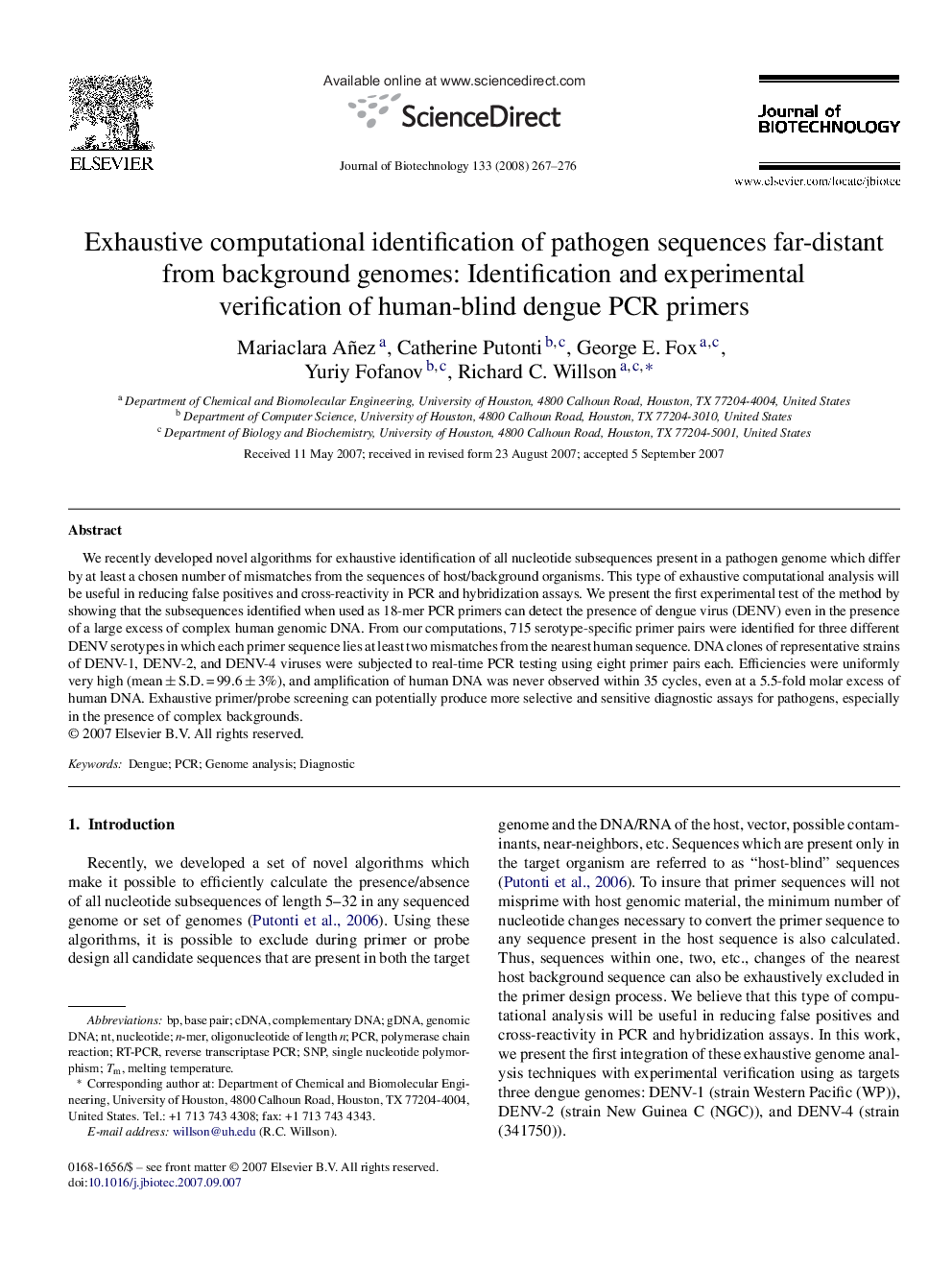| Article ID | Journal | Published Year | Pages | File Type |
|---|---|---|---|---|
| 24801 | Journal of Biotechnology | 2008 | 10 Pages |
We recently developed novel algorithms for exhaustive identification of all nucleotide subsequences present in a pathogen genome which differ by at least a chosen number of mismatches from the sequences of host/background organisms. This type of exhaustive computational analysis will be useful in reducing false positives and cross-reactivity in PCR and hybridization assays. We present the first experimental test of the method by showing that the subsequences identified when used as 18-mer PCR primers can detect the presence of dengue virus (DENV) even in the presence of a large excess of complex human genomic DNA. From our computations, 715 serotype-specific primer pairs were identified for three different DENV serotypes in which each primer sequence lies at least two mismatches from the nearest human sequence. DNA clones of representative strains of DENV-1, DENV-2, and DENV-4 viruses were subjected to real-time PCR testing using eight primer pairs each. Efficiencies were uniformly very high (mean ± S.D. = 99.6 ± 3%), and amplification of human DNA was never observed within 35 cycles, even at a 5.5-fold molar excess of human DNA. Exhaustive primer/probe screening can potentially produce more selective and sensitive diagnostic assays for pathogens, especially in the presence of complex backgrounds.
